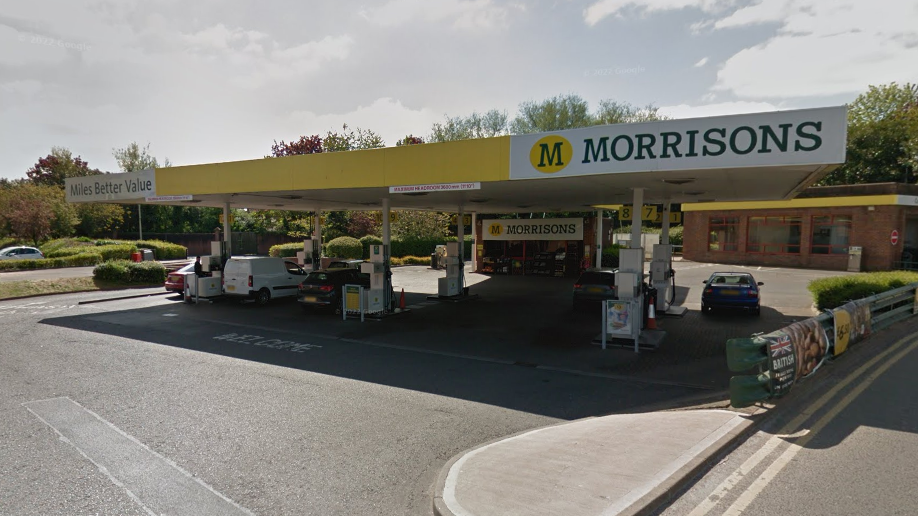Petrol drive-offs may not be a crime, police say
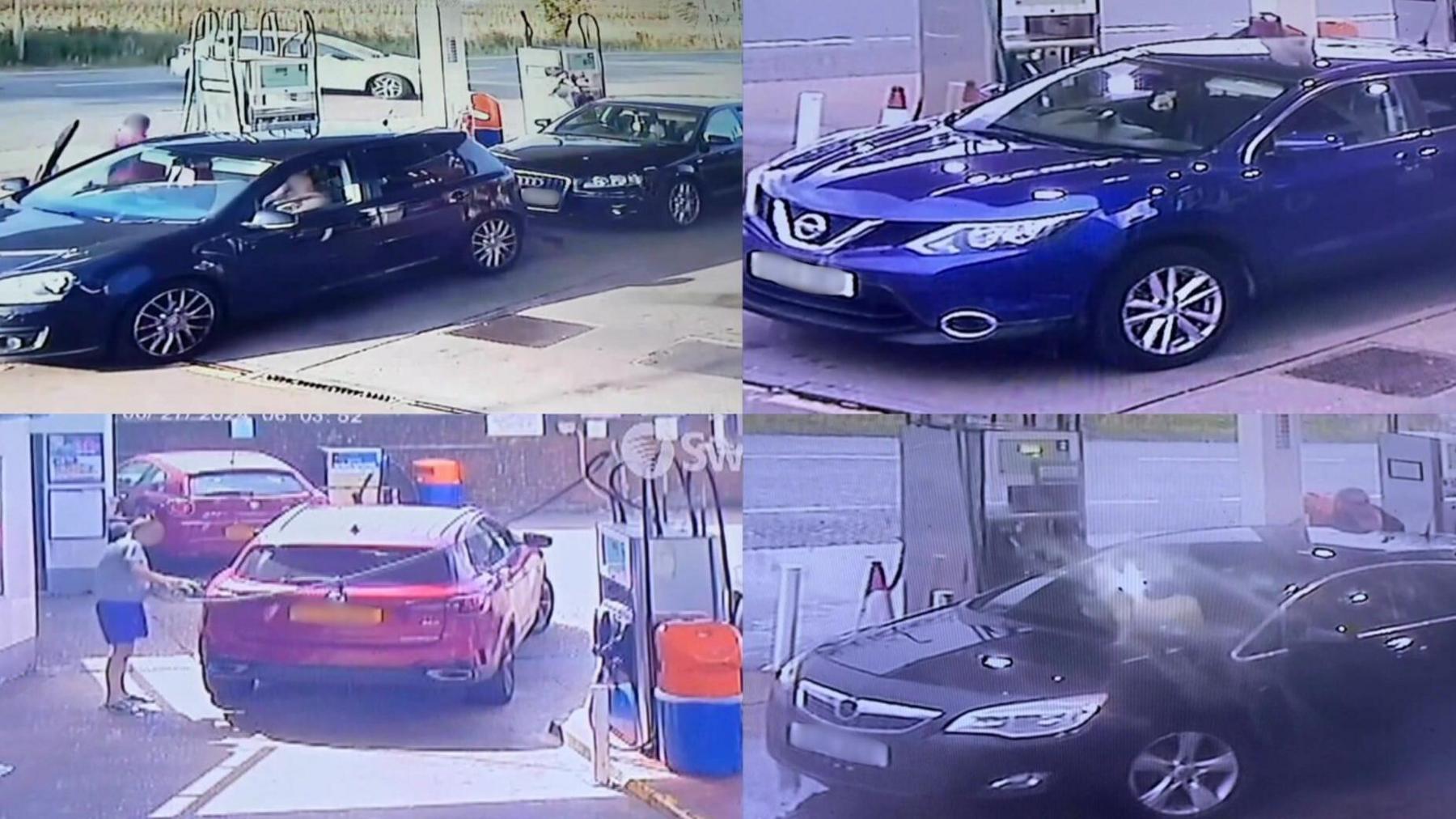
Empire Garage, in Mablethorpe, Lincolnshire, has CCTV footage of drivers it says have left without paying for fuel
- Published
A senior police officer has said people who drive off from petrol stations without paying for fuel might not be "having a great day".
Supt Fran Harrod, of Lincolnshire Police, said the force had "finite resources" to investigate cases and had to prove there was intent to steal.
She was responding to concerns about a lack of enforcement after the owner of a petrol station in Mablethorpe said drive-offs were killing her family business.
Kavita Pilani said her garage had suffered 50 thefts in six months and called on the force to “stop saying that this is not a crime” because it was “encouraging” people to do it.
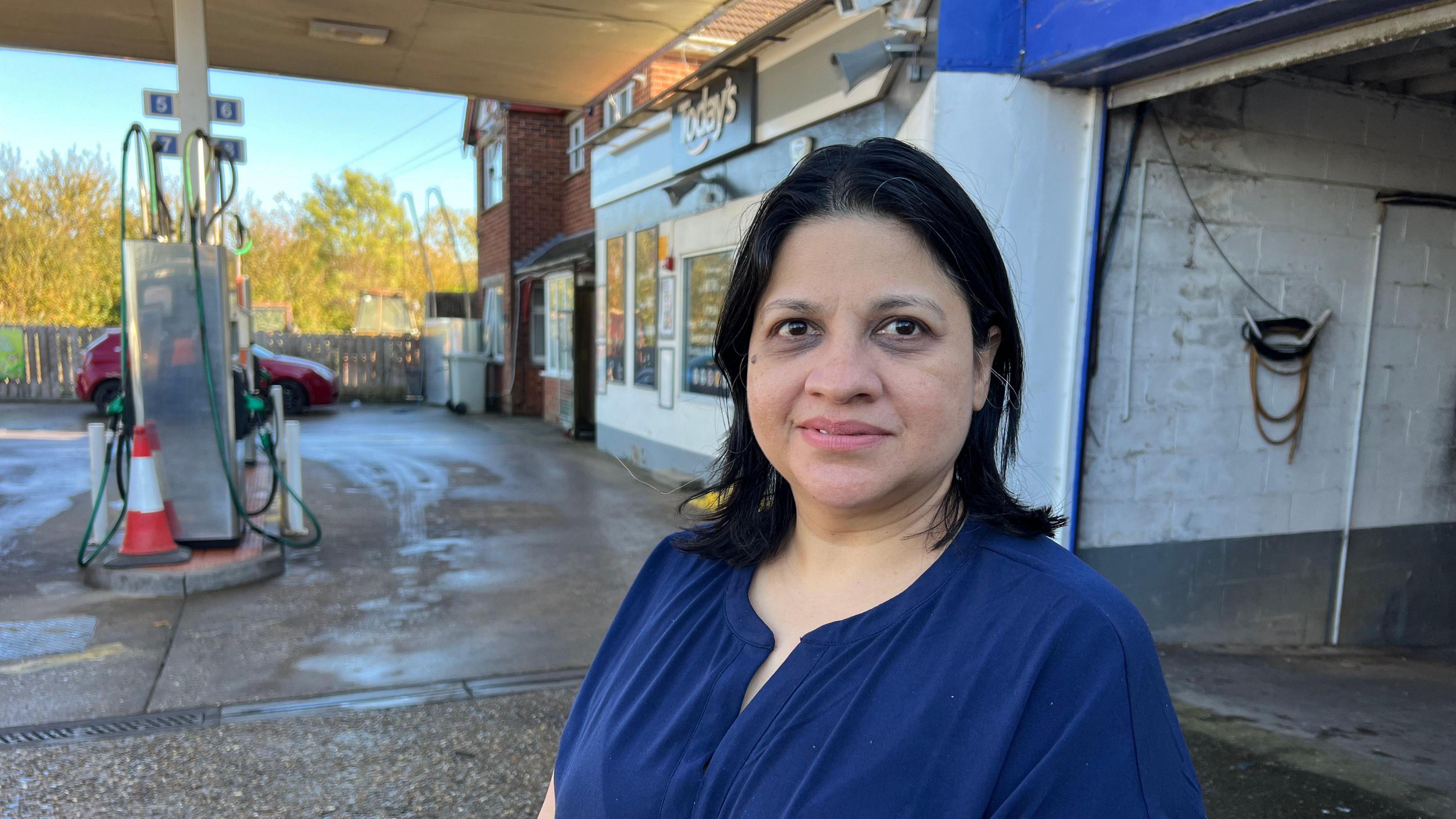
Kavita Pilani says drive-offs are causing “huge losses” to her family business
Mrs Pilani, who has owned Empire Garage with her husband Sanjay for 10 years, said drive-offs had increased over time and this year had been the worst yet.
People were filling their tanks with “nothing less than £80 or £90” of fuel before driving off without paying.
She said she had CCTV of suspected offenders and had reported every incident, but the police “don’t do anything about it”.
However, Lincolnshire Police has said incidents of "bilking" – the term used for drivers who pump fuel but leave without paying – can include people who simply forget to pay.
Supt Harrod said: "There is an offence of making off without payment.
"The issue that comes with that particular crime type is whether that is an honest mistake – somebody has filled up, they're not having a great day and they've driven off – or whether it's not."
Following a BBC report, Supt Harrod said officers had been sent to the garage to advise on preventative work.
She said the force was taking the issue seriously and insisted repeat offenders would be dealt with.
But she added: "In those high-volume incidences when one individual has left a garage without paying, there are numerous options that assist with the finite resources policing have – and perhaps more importantly for the businesses, to get them their money back.”
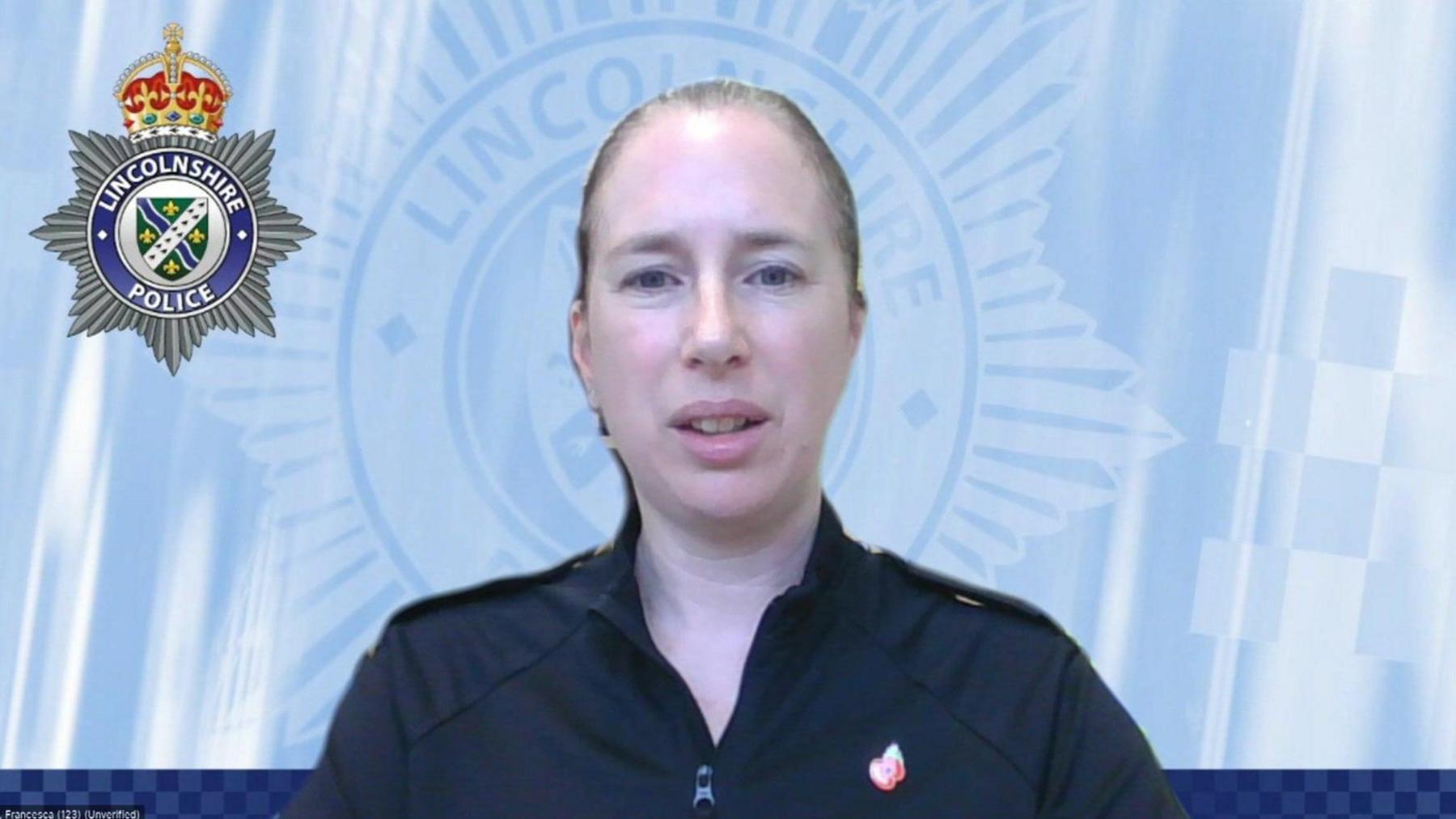
Supt Fran Harrod says fuel theft is going up, but can be prevented
Businesses should report fuel theft so officers can “understand the picture” and “provide preventative support”, she said.
The owners should then use a civil debt recovery route through the British Oil Security Syndicate.
This would ensure they got their money back "within a matter of weeks", as opposed to "using huge amounts of officer hours to go round and ask people to pay up, because the police’s time isn’t free either".
The Petrol Retailers Association, whose members run 65% of UK forecourts, has said drive-offs are costing the industry more than £100m a year – about £9,000 per forecourt.
Supt Harrod said fuel theft was going up across Lincolnshire, which was why the force was concentrating on "designing out" a preventable crime.
"We've got to be as efficient and effective as we possibly can to drive that crime down across the board," she added.
Mrs Pilani said she was aware that a police officer had visited the garage last week, though she and her husband were not in at the time.
She welcomed the force's support, but questioned how they would prevent thefts in future.
She was confident the motorists who were driving off had not forgotten to pay.
"We are giving them [the police] the proof of the person driving off," she added. "They just need to see the CCTV recording and call the people to come and pay."
Listen to highlights from Lincolnshire on BBC Sounds, watch the latest episode of Look North or tell us about a story you think we should be covering here, external.
Related topics
- Published25 October 2024
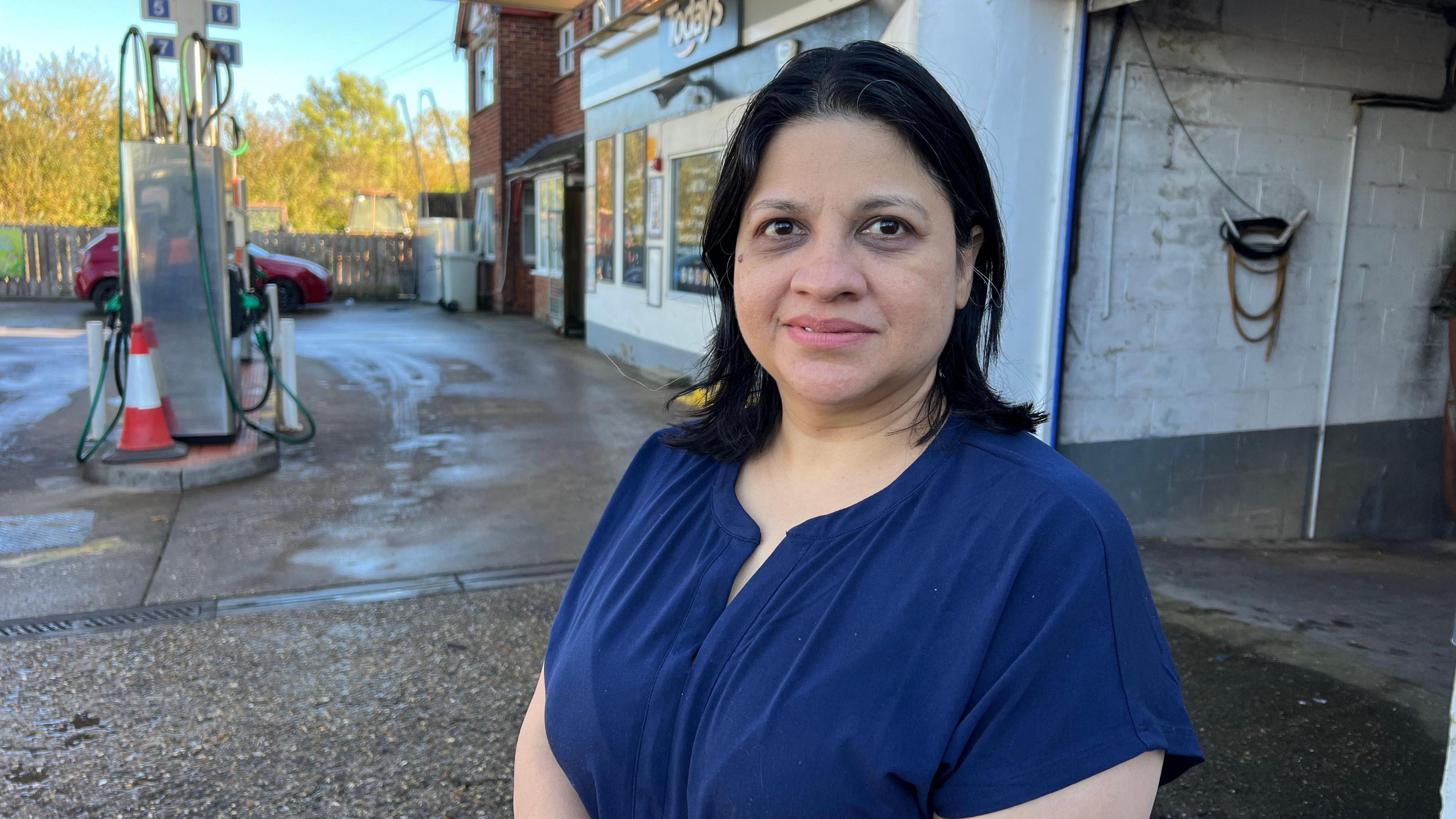
- Published9 February 2024

- Published5 November 2024
